Get expert information on the temperament and needs of more than 300 dog breeds. Filter or search to find the breed you’re looking for.
The first few months of a kitten’s life will include rapid growth, discovery, and various developments. Therefore, knowing from the beginning what to feed kittens is crucial for supporting healthy growth. As bones grow and brains mature, they will require energy, protein, and other nutrients. Choosing a diet that provides the right balance will prepare your kitten for a long and healthy life.
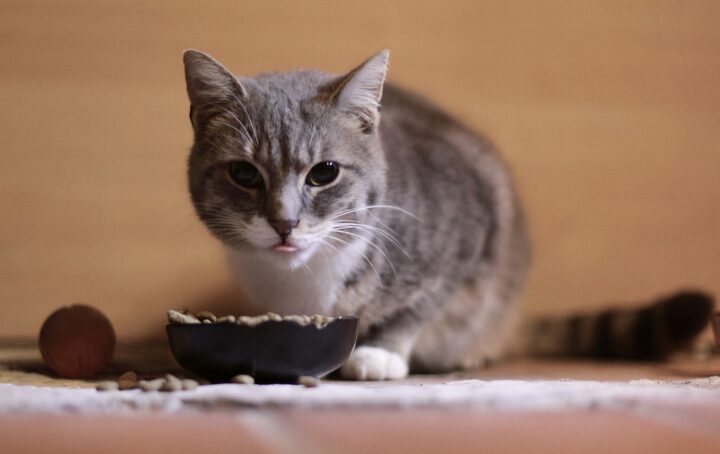
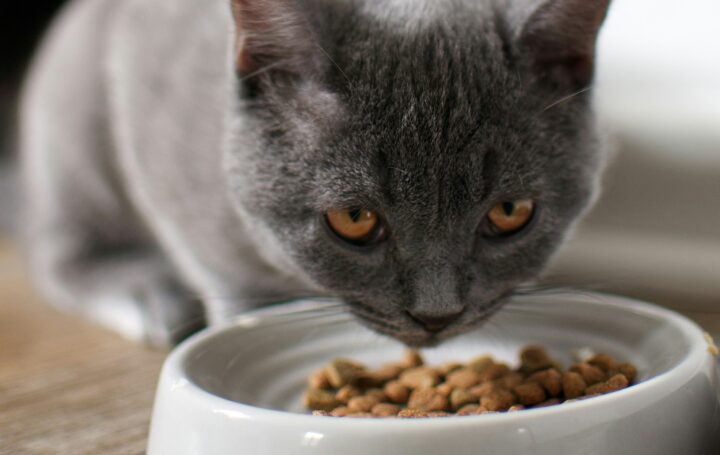
The nutritional requirements of kittens are very different from the food of adult cats. Their food should contain more energy and protein than adult cat food to support bone and muscle growth. When they explore, play, and grow, kittens need to adapt to their body size with food that provides appropriate nutritional balance to support their development.
Your kitten’s food must be able to support their development during their rapid growth period. Food should be easy for the digestive system to digest and suitable for their mouth and teeth. Kittens need a high protein diet to support bone and muscle growth.
Feeding cats wet food instead of dry food has its benefits, as wet food not only helps with their water intake, but also has a stronger scent that may attract them if they are picky eaters. This is because cats’ sense of smell is more sensitive than their taste. On the other hand, dry food is more suitable for grazers because it stays fresh in the bowl for a longer period of time. However, we encourage pet owners to mix feeding and add wet and dry food to their cats’ diets.
Either way, you should gradually introduce changes to your cat’s diet to prevent stomach upset. Cats can be sensitive to changes in their diet, and a slow transition (done over 7 days) will help avoid any issues.
Kittens normally drink their mother’s milk in their first weeks of life, so a replacement milk specially formulated for kittens can play an important nutritional role if the mother’s milk isn’t possible.
However, kittens should not be given cow’s or goat’s milk (neither should adult cats) as this can be difficult for them to digest properly, which can cause diarrhea.
Kittens and cats are sensitive to change in their diet and require a slow transition to avoid any problems.
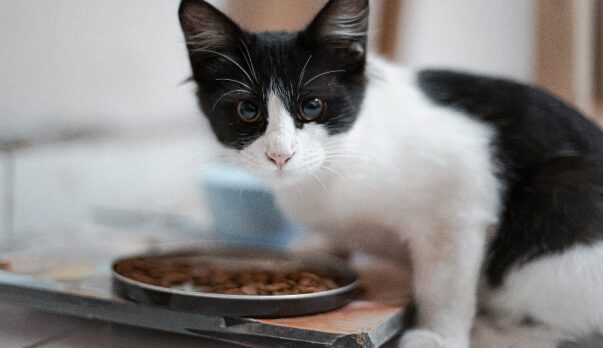
When feeding your kitten, it is essential to create the perfect environment that will make them excited for mealtimes. Here are some environmental tips to consider:
Quiet and calm – Creating an environment without distractions will allow your kitten to focus solely on their food.
Separate areas – Make sure to spread out your kitten’s food bowl away from their water bowl and litter box to avoid any contamination.
When it comes to giving your kitten water, it is essential to ensure that fresh, clean water is available in several quiet areas around your home and to wash the bowls regularly to prevent bacteria and odor issues. Also, it is advised that your kitten should drink 2 oz. of water per kg of weight, but this can vary depending on temperature, activity levels, and the health of your kitten.
The food your kitten eats provides the foundation for healthy growth, which is why getting it right from the start is so important. Once you’re confident that your kitten is eating the right food with the right nutrients for their breed and stage of development, you’ll be able to relax and enjoy this exciting stage of your pet’s life.
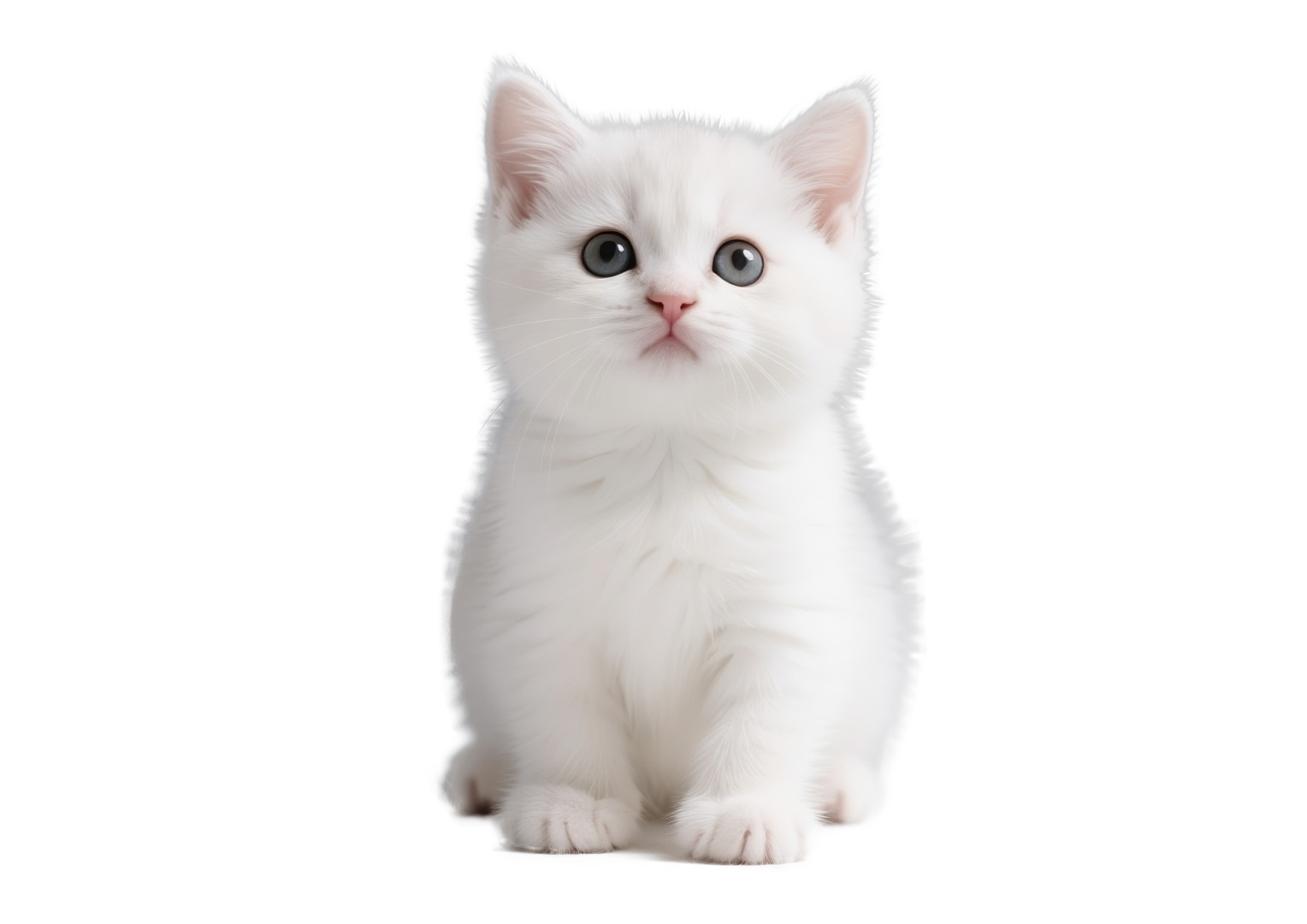
At this age, your little cat is growing at lightning speed. The one week old kitten just opened its eyes. Driven by breast milk, they gain approximately 0.3-1 ounces of weight per day. Fast forward to a month old, this small package has become a curious, playful but still small explorer. They will be ready to start weaning - a crucial process as kittens transition from relying solely on breast milk to meet their nutritional needs to independence. The weaning process is usually completed in about two months. Their first meal needs to be soft to ease the transition from milk to solid food, and rich in antioxidants they need to build immunity and amino acids that help muscle and cell growth.
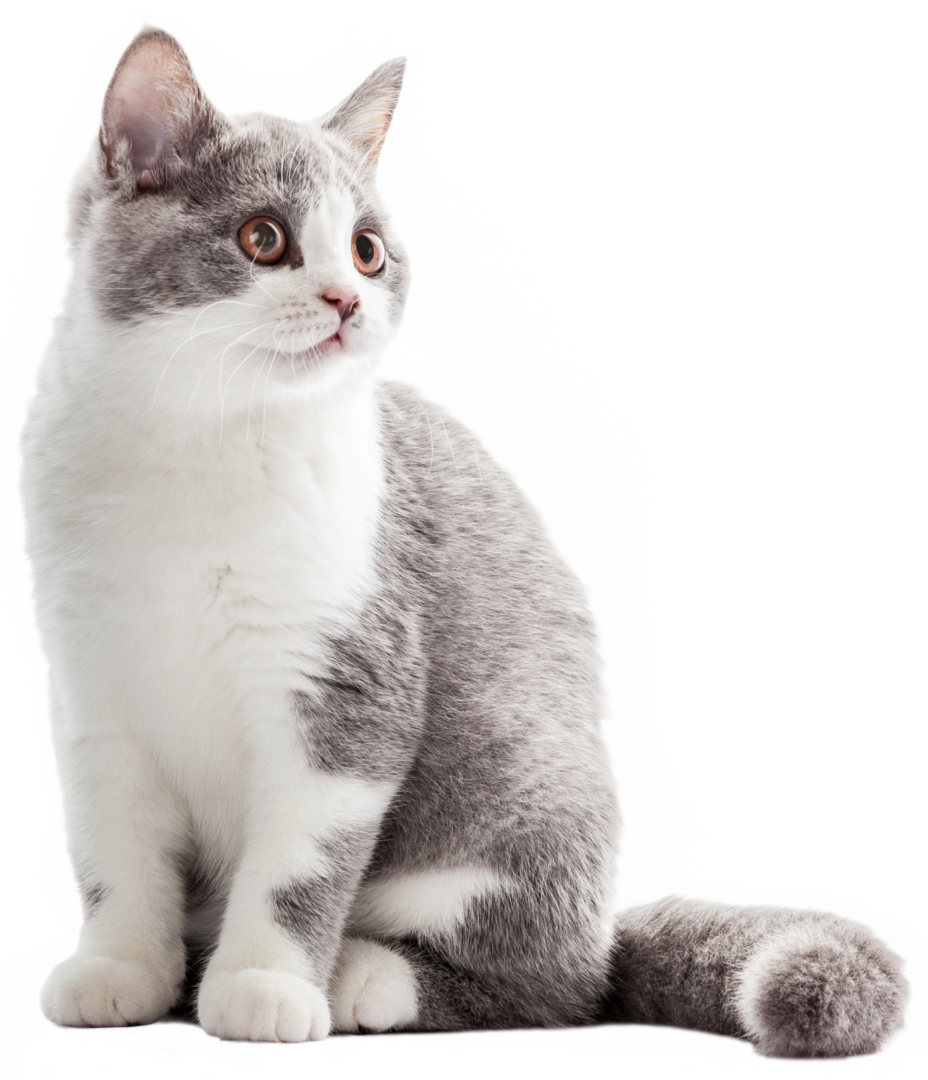
Your kitten is continuously growing, forming strong muscles and bones. Their growth is strongest around four to five months, with an increase of approximately 3.5 ounces per week. They need more energy rich food than adult cats - food that contains more calories per ounce. But initially, as they wait for their adult teeth to grow, they must have food that their small mouths can handle. Pay close attention to the weight distribution to ensure that your kitten does not gain too much weight during this growth stage. At this age, kittens are busy playing while also honing their social skills. During this period, your kitten will go through puberty and you may notice that their behavior becomes more like that of an adult cat. This may include sleeping an extra 13 to 16 hours per day. After all, growing, developing, and socializing is a tiring job.
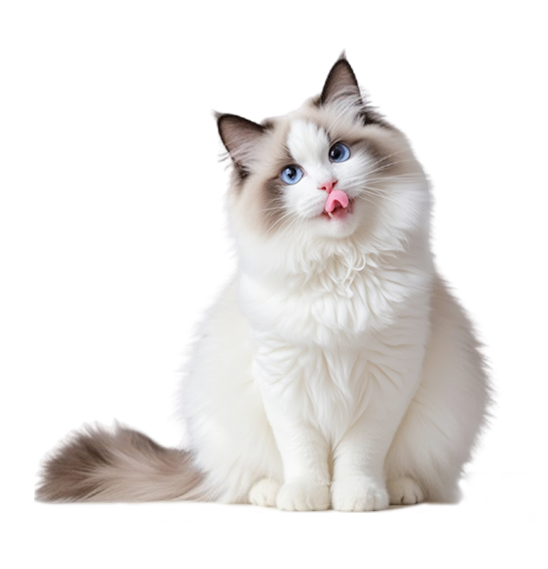
When your pet is about one year old, you will bid farewell to the kitten stage and begin to adapt to the life of an adult cat. At the age of one, your pet's adult teeth are already in place, which means they are ready to receive adult food. Please ask the veterinarian to help manage this transition. Your cat's food no longer needs to be energy intensive, but they still require amino acids including taurine and vitamins A and D. You need to decide whether to feed cats wet or dry (or both), and choose appropriate food based on their habits and activity levels. Feeding the correct amount is crucial in preventing them from becoming overweight.
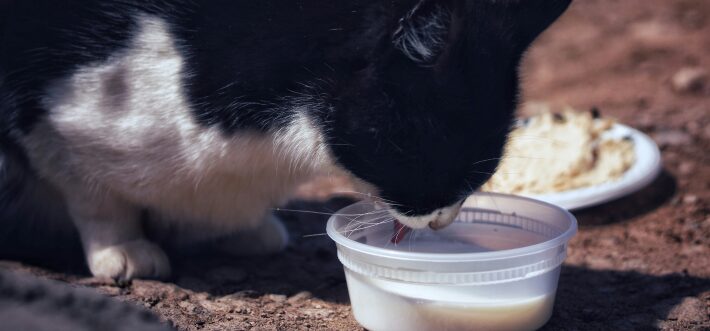
As a new pet owner, a big question you will ask yourself is what to feed your cat. Wet food can increase the cat’s water intake and has a strong aroma, which may tempt picky cats to eat their bowls. Cats are more sensitive to odor than taste. On the other hand, dry food stays fresh in the bowl for a longer period of time – which is good news for grazers because cats are instinctive grazers.
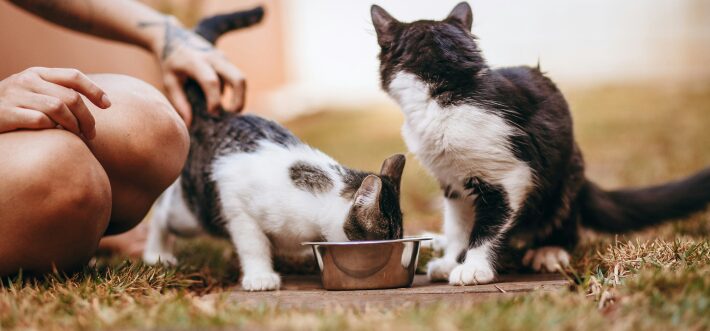
Its function is very similar to a toothbrush, gently removing dental plaque. As for when your cat can eat dry food: The tiny hydrating cookies designed specifically for kittens are suitable for starting at one month old, around the beginning of the weaning process. -Once you have conducted research, you may come to the conclusion that mixing is the ideal solution, either by alternating between dry and wet food, or by feeding both at the same time (but not in the same bowl – if the cat doesn’t eat all the wet food immediately, it will make the dry biscuits wet)
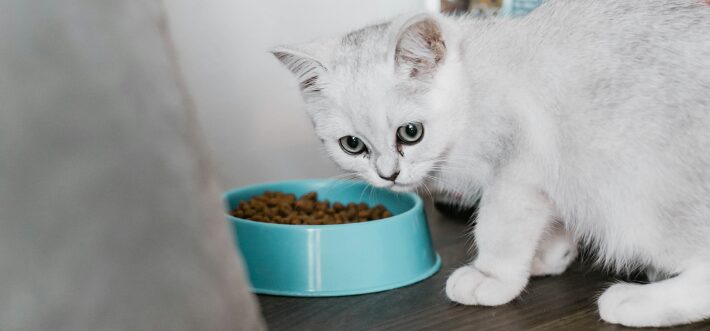
Either way, you should gradually make any changes to your cat’s diet to prevent stomach discomfort. Cats are very sensitive to changes in their diet, and a slow transition will help avoid any problems. Kittens usually drink breast milk in the first few weeks of birth, so if not possible, alternative milk specially formulated for kittens can play an important nutritional role. But kittens should not drink milk (even adult cats should not drink it). They are unable to digest milk, which may lead to diarrhea.
It’s a good idea to know how much kittens should eat before they arrive. The amount they should eat will depend on the breed, exact age, and developmental stage of your new pet. Once you have determined what they should eat, make sure to measure their daily food allocation. If you want to know how many times a day you feed your kitten Well, you may find that they decide for themselves. Cats are natural herbivores and can usually regulate their intake by having a few small meals a day. Although not all cats are like this, if it applies to your cat, eat one less bowl of appropriate food (not exceeding their daily total food ration) and let them act according to their instincts.
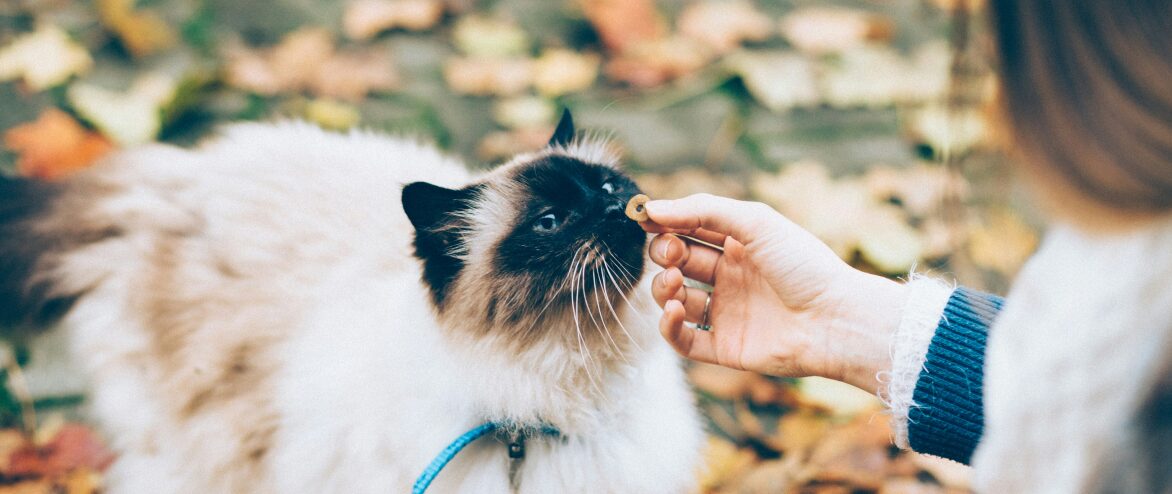
Understanding the amazing transformation your kitten goes through as they mature into adulthood will ensure they get the right nutritional balance at each stage of development.
Immediately after birth, kittens should be guided to suckle. The mother passes important nutrients to their litter in these first hours and days which supports their healthy development.
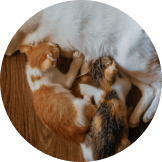
Once kittens are delivered, they should naturally crawl towards their mother and start to suckle. In doing so, they will ingest colostrum, a component of their mother's milk that is rich in antibodies and enhances the immune system.
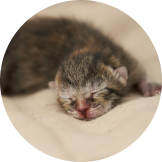
At birth, the risks for newborn kittens are two-fold: they may suffer a lack of oxygen for varying durations due to abruption of the placenta and they come into immediate contact with surrounding bacteria and viruses having left the uterus. The breeder must take careful hygiene precautions, ensure the birthing pen is appropriately prepared, and monitor the birth of the kittens to limit the impact on neonatal health.
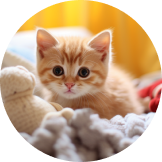
Although kittens are born without the use of their ears or eyes, they exhibit a number of reflexive behaviors at this early stage. A kitten is already able to navigate their surroundings, relying on scent and touch. They are able to keep warm by nestling with their mother, and gain nourishment by suckling.
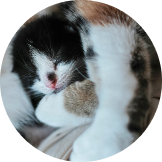
Kittens should be born at around 2 - 3% of their mother's weight. In the first days, the weight increases daily by approximately 10% of the birth weight. Males are often heavier and grow faster. Kittens are born blind and deaf. They will find their mother for shelter and nutrition.
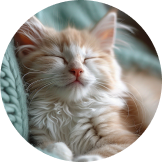
Newborn kittens should be kept with their mothers full-time to keep them warm, clean, and fed. Their pen should be around 72°F to reduce the risk of hypothermia, and ideally needs to have 65-70% humidity.
The newborn kitten is close to its mother and the warmth and safety of the cat. They spend their time sleeping and feeding.
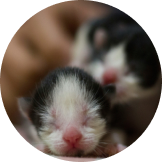
In the first few days of birth, responsible caretakers should ensure that kittens undergo veterinary examination. They will check for any birth defects or issues that need to be addressed. Separating from mother cats and cats of the same age during the neonatal stage may lead to poor physical and intellectual development, as well as sexual problems. During the first six months after birth, deworming should be done monthly.
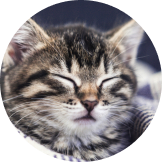
At this stage, kittens will continue to heavily rely on breast milk to support their immune system and provide them with key proteins that aid in their development. In the first four weeks, the kitten may start drinking water, so it should be kept nearby
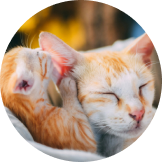
At this stage, the kitten spends most of its time sleeping every day - about 90% of the time in the first few weeks. The activity is limited to crawling to seek warmth and milk from the mother. The gurgling sound and other sound features are very obvious.
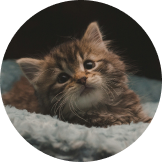
At around five days old, kittens begin to open their eyes. Their umbilical cord will fall off about a week after birth. This is also when they start to gain 10 to 30 grams of weight per day.
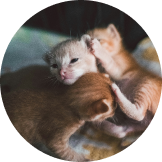
A clean, calm, and warm environment is crucial in the first few weeks. If there is too much noise and interference, sleep and eating patterns may be disrupted. Maintaining a kitten's body temperature above 93.2 ° F is crucial. If the body temperature of kittens drops below 93.2 ° F, they cannot effectively digest milk. When the body temperature drops below 89.6 ° F, the lactation reflex disappears and normal feeding stops.
The physical development of the kitten accelerates, and the weaning process begins. This is an important stage of learning from their mothers, brothers and sisters.
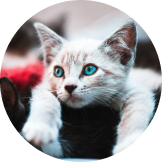
As a kitten's milk teeth develop, the weaning process begins. After a while the kittens will begin to show an interest in their mother's solid food and they can begin to transition from a milk-only diet. Their immature digestive system means that it's important they get easily digestible food that meets the specific nutritional needs of this stage.
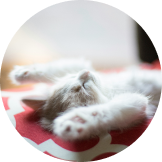
During this stage the "immunity gap" occurs. At this time, when the level of antibodies provided by the mother are no longer enough to guarantee the kitten is protected, but too high to ensure a vaccination will be effective, the kitten is more vulnerable to disease. Sleep helps to strengthen their immune system, so ensuring kittens have a warm, comfortable and quiet place to sleep is vital.
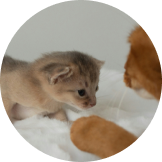
As this stage progresses, kittens start to interact more with their litter-mates, and they begin mutual grooming. They will start to actively play, exhibiting running, pouncing, and stalking behaviors. At this stage their sight is fully mature.
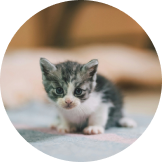
By the fourth week, smell is fully mature and hearing is well-developed. By the sixth and seventh weeks they begin to develop adult sleeping patterns and motor abilities. Key social skills develop through interaction with litter-mates, and learning is achieved through observation of their mother’s behavior.
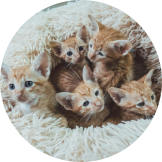
As kittens become more mobile and adventurous, it is important to "kitten-proof" the environment. This is also a key learning stage, so making sure kittens have access to toys and other stimulation is key. Regular handling and interaction with different humans will aid their confidence as adults.
The kitten starts to understand its place in the world and develops behaviors that will stay with them for life.
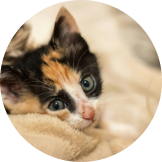
From around eight weeks, your kitten will be at the ideal age to begin their core vaccinations, with secondary injections required three to five weeks after. This is an important process in ensuring each kitten has the right protection for their adult life. Consult your vet to make sure a vaccination schedule is in place.
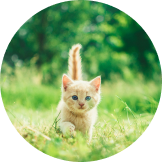
Some nutrients still can't be digested, so ensuring that the kitten has food tailored to their developmental stage is important. This makes sure that they get the nutrients and energy they need during this vitally important developmental phase.
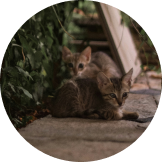
This is the stage at which the kitten's behavior is most influenced by others, including litter mates, other pets and humans. They also begin to understand their position within the household and may begin to form dominant and submissive behaviors depending on their experiences and training.
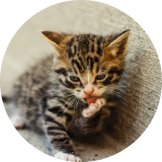
This is a key stage in its development of human relationships, so ensuring consistency and offering support and affection is key. Effective socialization at this stage is key to raising a well-behaved and happy cat.
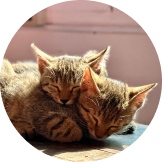
Kittens can begin to be moved away from their mother and introduced to new homes at around 8 weeks. Depending on the reader, this could be up to 12 weeks. If you are bringing a kitten home, it's important to make sure that their new environment is fully prepared, with electrical wires and outlets covered, windows, balconies and stairs secured, and any sharp or small objects tidied away.
Adulthood approaches, and the kitten gradually reaches full physical maturity.

During this period cats begin to scent mark through spraying and rubbing the glands on their cheeks against objects, other animals, and humans. This is the signal that puberty is starting. Neutering should now be discussed with your vet.
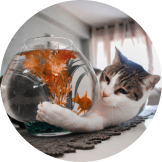
As the kitten approaches physical maturity and gets close to its full adult weight, it will need to transition to adult food and adult portions. The nutritional balance will be dependent on their size and metabolic factors such as whether they are allowed outdoors and whether they've been neutered.
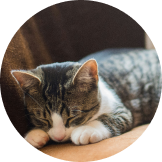
As the cat begins to approach physical maturity, there is increased exploration of dominance within the household. This will include challenging the status of humans and other pets. It is important that as an owner you maintain the routines and behaviors set in the early months of their life to ensure consistency and manage stress.
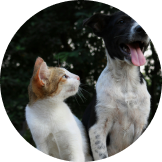
At this stage your kitten will begin to develop 30 adult teeth. If he hasn't been neutered, sexual maturity is reached at six months, and sexual cycles and mating behaviors begin. By eight months the kitten will have reached 80% of its adult weight. Depending on the breed, adulthood is reached between 12 to 15 months.
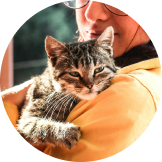
If kittens have had all their vaccinations and once they reach around six months old, you can begin to introduce them to the outside world. A phased approach to this is best. Until kittens are confident in their surroundings, it is best to stay with them when they are outside. When they feel confident they will begin to venture further. As a rule, male cats have a wider range, while females stay closer to home. At this stage, consistent owner behavior and discipline is important.
The kitten starts to understand its place in the world and develops behaviors that will stay with them for life.
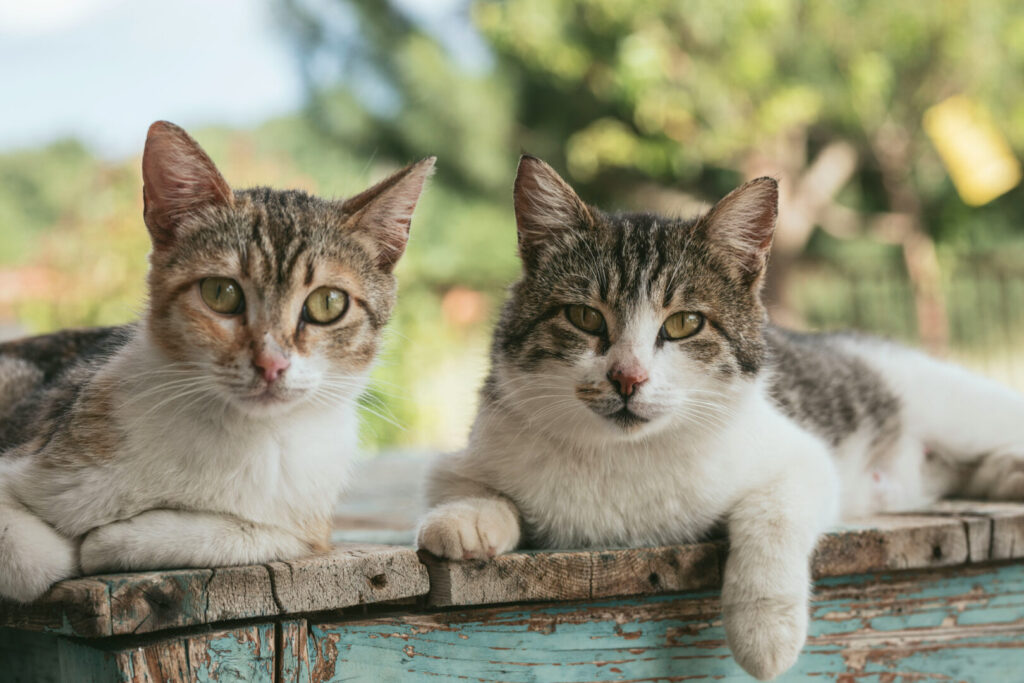

Completely Pet Food is a company with a deep foundation and outstanding strength in the field of pet food
contact us: info@aorida.com
Sign up to get first dibs on new arrivals, sales, exclusive content, events and more!
Copyright © 2023 Aivonic, All rights reserved. Powered by MoxCreative